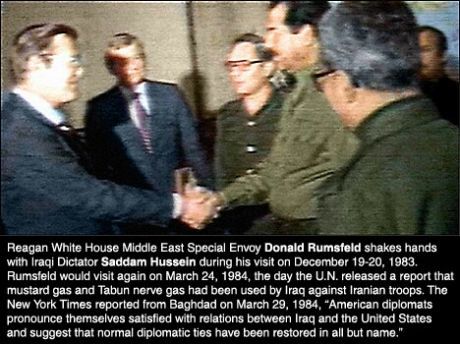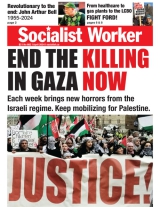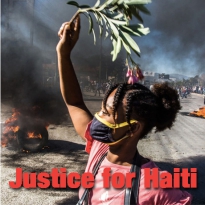Features
You are here
Iraq: an imperial history

October 15, 2014
“Our armies do not come into your cities as conquerors or enemies, but as liberators.” So said British Lieutenant General Frederick Stanley Maude to Iraqis in 1917.
Britain had invaded to drive out the Ottaman Empire, and claimed they supported Iraqis rather than the vast oil reserves beneath them. Imperial powers have repeated this lie since then, to justify repeated wars and occupations.
1920-40s: British bombing
Three years after General Maude's statement, Britain still controlled Iraq and the 1920 revolution united Sunni and Shia against British occupation. An article from The Guardian during the last Iraq War described the British response to self-determination: “When Iraqi tribes stood up for themselves, we unleashed the flying dogs of war to ‘police’ them. Terror bombing, night bombing, heavy bombers, delayed action bombs (particularly lethal against children) were all developed during raids on mud, stone and reed villages during Britain's League of Nations' mandate…Churchill was particularly keen on chemical weapons, suggesting they be used ‘against recalcitrant Arabs as an experiment’. He dismissed objections as ‘unreasonable’. "I am strongly in favour of using poisoned gas against uncivilised tribes…(to) spread a lively terror."
Having crushed the revolt, Britain installed a puppet regime. Britain granted “independence” to Iraq in 1932, but retained bases and unrestricted troop movement, and launched another war in 1941 to restore a pro-British regime.
1980-88: arming both sides of the Iran-Iraq War
After the 1979 revolution in Iran, Iraq invaded. The US armed Saddam Hussein with chemical weapons, which he used against Iranians and Iraqi Kurds. The US also sold arms to Iran, and used the profits to support the terrorist Contras in Nicaragua.
1990-91 Gulf War
After former ally Saddam Hussein invaded Kuwait, the US led a UN war that killed thousands and poisoned countless (including US troops) with depleted uranium. When Iraqis rose up against Saddam Hussein they had no support from the West and were crushed.
1991-2003: sanctions and no-fly zones
Following the war the US and UK imposed “no fly zones” that allowed them to bomb Iraq and pave the way for the next war. Meanwhile the UN imposed sanctions that killed 1.5 million people, including half a million children. In 1996 a reporter asked US Secretary of State Madeleine Albright, “We have heard that half a million children have died. I mean, that’s more children than died in Hiroshima…is the price worth it?” Albright’s response: “The price is worth it.”
2003-11 Iraq War
After genocidal sanctions the US and Britain launched yet another war in Iraq, which George Bush called Operation Iraqi Freedom—it was first called Operation Iraq Liberation until they realized that spelled OIL. The war killed a million people, imposed a Parliament along ethnic lines and armed sectarian death squads, planting the seeds for ISIS to grow. While the occupation “ended” in 2011, US bases and thousands of military contractors have remained
2014: another war
Now the US is using ISIS—the product of imperialism—as an excuse for a war that will be a recruitment tool for ISIS. For the past century Western intervention has only benefited oil companies and never benefited the people of Iraq.
On October 25-26 join protests against the latest war, organized by the Canadian Peace Alliance and Echec a la guerre. In Toronto the rally starts 2:30pm at the US consulate, 360 University ave.
Section:










